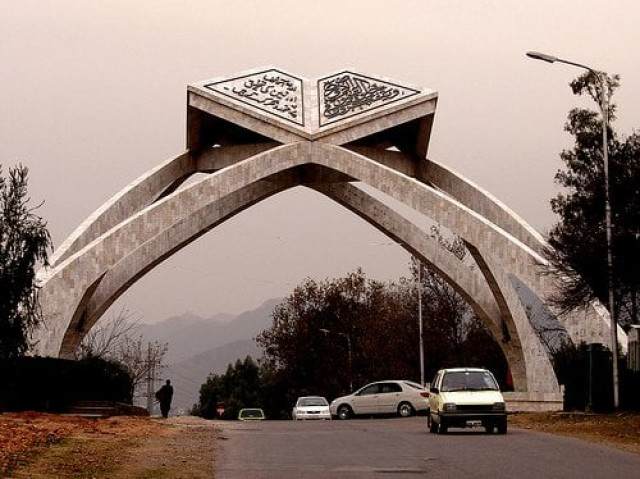‘Politics uses religion to serve interests’
Webinar highlights relationship, impact on society

“Religion and politics have an independent causal effect on each other. This relationship impacts both negative and positive on the development of society,” observed renowned historian Prof Dr Aslam Syed while responding to a question on the relation between religion and politics.
“Throughout history and contemporary societies, religion has played a major role in political development in the world. The relation between religion and politics continues to be an important theme in political philosophy,” Dr Syed elaborated during a webinar on ‘Discourse in History and Religion’ held here on Sunday.
He emphasised that religion and politics complement each other. This was the seventh online session exclusively dedicated to discussing religion and history. It was arranged by the National Institute of Historical and Cultural Research, Centre of Excellence, Quaid-i-Azam University, Islamabad, attended by over 1,000 participants including students, teachers and researchers.
Responding to a question, Dr Syed remarked that society becomes free when the hold of religion is weak; in the reverse case, it reverts society to old traditions and reduces the role of modernity. “However, whenever religion relegates under political, social, or economic pressure, society contributes in philosophy, art and literature and music. In history, such were the periods of the Abbasid rule whose caliphs patronised men of letters and scientists. Akbar’s period in the Mughal rule was significant because during this period new ideas were allowed to flourish,” Dr Syed said.
Replying to another question, Dr Syed said that the real strength of religion lies in the belief in its truthfulness and not in patronisation and protection of the state. History is evident that whenever politics is called in to help religion, it uses it for its interests and makes an effort to subordinate it which subsequently weakens religion and its beliefs.
Moreover, whenever, religion tries to interfere in the economy or politics and cannot keep pace with changes, it becomes the butt of criticism. “Religion and politics have one common goal: that is to acquire political power and use it to fulfil their aims.
However, to achieve this object, their methods are different. Religion mobilises religious sensibilities of people in order to get their support to capture power; while politics uses intrigue, diplomacy, and makes attempt to win public opinion either democratically if the system allows it or usurps power if the society is under-developed and backward,” Dr Syed said in answer to another question.
Elaborating further, Dr Syed said that in a power struggle, politics and religion attempt to dominate each other. If religion holds political authority, its ambition is to exploit it to fulfil a divine mission. It claims that it derives authority from divinity and therefore its mission is holy, motivated to reform society under spiritual guidance.
Politics, on the contrary, bereft of any value, direct its policy on the needs and requirements of society whereupon, it is obliged to change laws and system of government accordingly, he concluded. Prof Dr Syed is currently serving the Centre for Religious Studies, Ruhr Universität, Bochum, Germany. He remained Chairman, Department of History, Quaid-iAzam University, Islamabad and served NIHCR as its Director.



















COMMENTS
Comments are moderated and generally will be posted if they are on-topic and not abusive.
For more information, please see our Comments FAQ